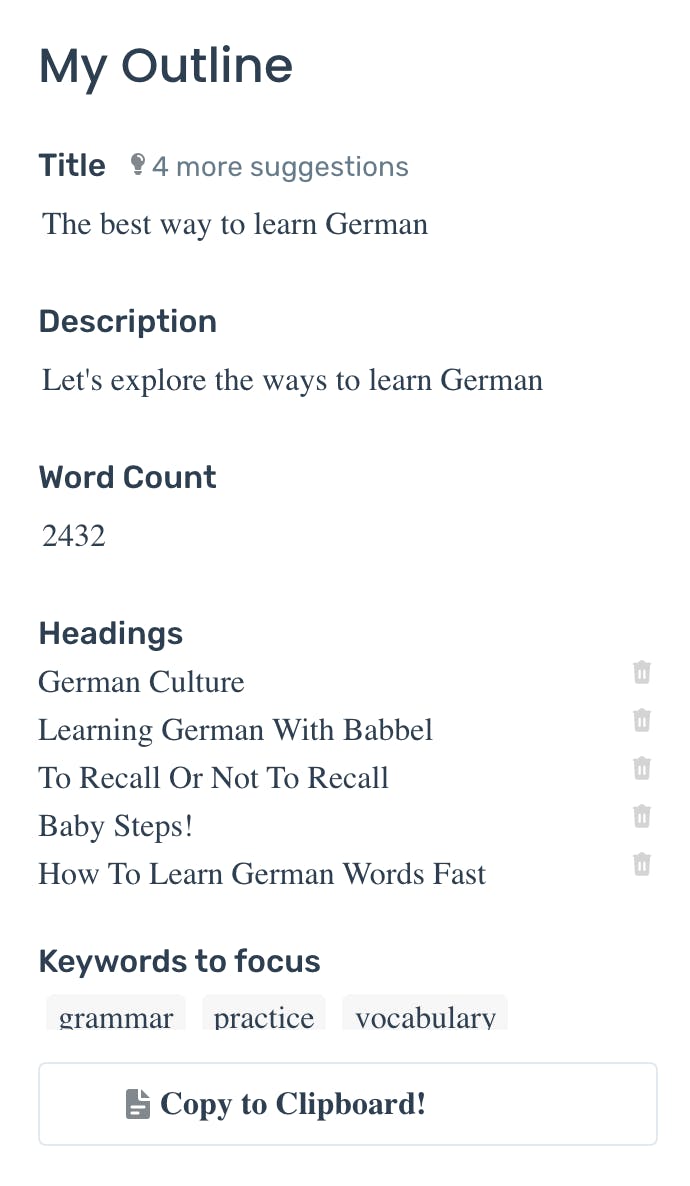Best Writing Tools For Crafting SEO-Friendly Content
Marketing departments have started to divert a massive chunk to content, and articles are a considerable portion of the content budget. According to a 2020 analysis by the Content Marketing Institute and MarketingProfs, 86 percent of organisations agree content marketing raises brand visibility, while 79 percent believe it helps them educate their customers, and 75 percent use it to build credibility and trust. More than half of respondents believe content marketing plays a significant role in creating sales and revenue.
Content is King
Marketers in recent years focus a lot on keywords and SEO, but that shouldn’t be the case. Content should be at the centre, with SEO helping to boost it. Google break down the traditional practices of focusing heavily on keywords and states content must adhere to the following four principles,
- Make pages primarily for users, not for search engines.
- Don’t deceive your users.
- Avoid tricks intended to improve search engine rankings. A good rule of thumb is whether you’d feel comfortable explaining what you’ve done to a website that competes with you, or to a Google employee. - Another useful test is to ask, “Does this help my users? Would I do this if search engines didn’t exist?”
- Think about what makes your website unique, valuable, or engaging. Make your website stand out from others in your field.
So to focus on users, we need to focus on creators. And, one of the best ways to do that is by using some powerful tools. Let’s go through the list!
Tools for Content Creators
Content Research Tools
Headlines bring the Audience to the content, and so having a good one is essential. These two tools might help:
Hubspot
The Hubspot Blog Topic Generator is a straightforward but useful tool for brainstorming article ideas. Begin by typing a noun for your topic and work your way up. Ideas are very limited though.
AnswerThePublic
AnswerThePublic can help you come up with topic and headline ideas. Essentially, this app pulls data from Google and Bing’s auto-suggest data. After you’ve seen what people are asking, you can tailor your blog material and headlines to directly answer those queries.
Crazy Egg
Crazy Egg functions as a headline analyser and you can examine headlines on your site using heatmaps and confetti maps to discover what users are clicking. You may also A/B test titles to see how one headline performs versus another.
Editing Tools
Even popular and established writers struggle to get all of the minor aspects of writing correct. Fortunately, these authors have tools that polish their work and make them appear their best.
Grammarly
Grammarly is a famous one, and chances are you’re using this already. It is a cloud-based writing assistant that checks for spelling, grammar, punctuation, clarity, engagement, and delivery errors across several platforms.
Grammarly uses artificial intelligence to detect and find a suitable replacement for the error it discovers. Users can also personalise their style, tone, and context-specific terminology, but only with the pro plan and for organisations that follow a consistent brand guideline.
QuillBot AI
QuillBot’s uses AI to assist writers in rewriting and improving any sentence, paragraph, or article. This paraphrasing tool can help you choose the best words and maintain the elegance of the writing. Also, they have a very generous free plan.
Hemingway Editor
Hemingway Editor helps you to simplify content. When writing, Hemingway checks for clarity, syntax, tone, and flow. There are different colours for words, sentences, and paragraphs to indicate
various errors you may wish to rectify. You may also keep an eye on your content’s readability in the right sidebar.
Bonus: Content Toolkit
A tool that would help you as a writer would be generately.ai.
 Let’s break that down it into three parts:
Let’s break that down it into three parts:
Planning
Generately uses GPT-3 behind the doors and helps you with outlines for various blogs, and if you ask me, it saves a lot of time in research and planning. Like, forget going through a number of posts to find what’s being told by other authors. Just plug in the keyword, and you’re good to go with your Competitive Analysis and what’s going on in different articles. It gives a list of keywords, and topics to trigger your thinking.
The tool also helps decide the ideal length of the article with a Word Count recommender will ensure your article meets the SEO standards. Quite helpful, as you don’t need to guess the ideal word count and focus on the quality of the post.
SEO
Great content without SEO is just content. It’s not widespread and limits itself to the people who have links. As a writer, you might know how much people pay extra for optimised content that rank, and manually optimising by searching a couple of sites is extremely hard. I like using one that helps me to optimize my time and generately is the one.
Optimised Titles
Finding good titles is hard, and I have used several tools like HubSpot, but they tend to be quite limited. I see these tools manipulating few generic words to create a tool, but Generately has an inbuilt suggestion that helps you with SEO friendly titles that are also good.
Thanks for Reading
I hope by now you are geared up for creating excellent content and leveraging these tools to say bye to tedious and repetitive tasks. There were many tools that weren’t in this list as they’re not good enough or are quite ancestral and don’t add any value to the current marketplace.
I think of spending money on writing tools as an investment, and to summarise, the three tools (investments) I can’t leave without are:
- Grammarly
- Quilibot
- Generately.ai
Happy Creating!
